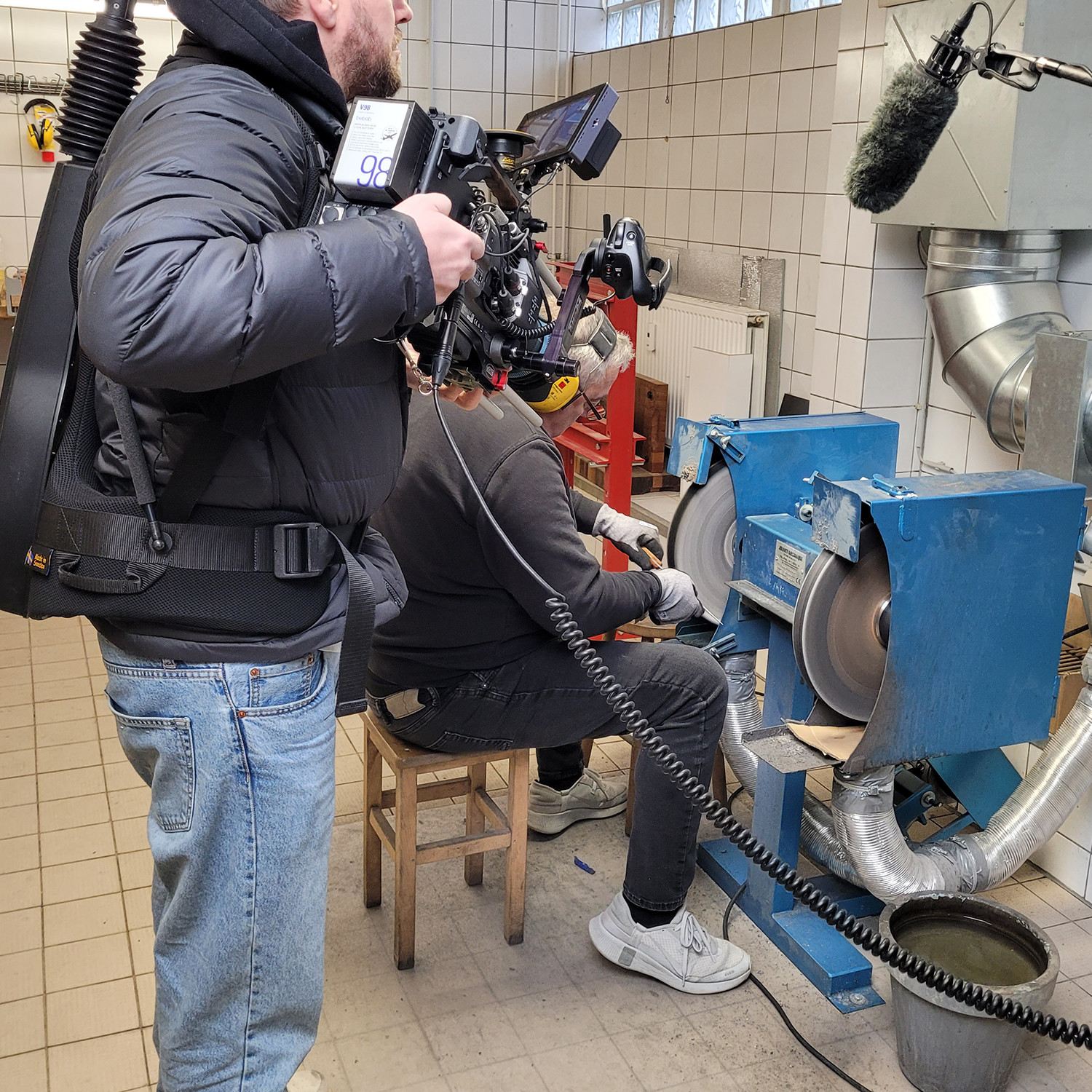Romefort family on Sat.1 breakfast television

Attention all amateur and professional chefs! We are pleased to inform you that Cuisine Romefort was featured today on Sat.1 breakfast television. If you missed it, don't worry: watch the segment where we reveal some tips and tricks for handling and caring for kitchen knives here (you may have to wait a short while for the still image to turn into a video).

We have listed the key facts from our presentation for you here:
- Invest in a good quality knife. Cheap, low-quality knives are difficult to sharpen and maintain, and can even be dangerous. Spend a little more money on a quality knife, and it will pay off in the long run. In our store we offer a compact selection of kitchen knives, as essential tools for your kitchen. For example, our chef's knife is made of high-quality carbon steel, which is known for its sharpness and edge retention. Carbon steel blades are also easier to sharpen and maintain than stainless steel, making them a great choice for professional chefs and amateur cooks alike.
- Keep your knives sharp. A dull knife can be more dangerous than a sharp one because you have to apply more pressure when cutting food, which increases the risk of slips and accidents. Sharpen your knives regularly with a sharpening rod or whetstone, or have them sharpened from time to time by a professional knife sharpener. Remember that sharpening stones are difficult to handle and can damage the blade if not used properly. You should also be sensitive when it comes to sharpening steel and seek advice from a professional on how to use it, if necessary.
- Choose the right knife for the job. Each type of knife is designed for a specific purpose, however, you don't necessarily need specific knives for each purpose either. For example, a paring knife is great for peeling and slicing small fruits and vegetables, while a chef's knife is perfect for chopping and dicing larger items. However, with a good chef's knife that is really sharp, you can also fillet meat. If you use a good chef's knife as an all-rounder and have a small knife for chopping, you're all set.
- Store your knives safely. Store your knives on a magnetic knife rack or in a drawer. For the latter, be careful to remove the knives carefully and not cut yourself if there are too many knives on top of each other. You can protect yourself from the sharp edges with a blade guard or sleeve on the knives. Do not store your knives in a knife block, as the slots can dull the blade over time.
- Use a sturdy and sanitary cutting surface. It's important to use a cutting board or other sturdy surface when using a knife to prevent accidents and protect the blade. Avoid cutting on hard surfaces such as marble or glass, as these can dull or even break the blade. Plastic cutting boards can harbor bacteria in the cuts caused by the knife. Therefore, it is best to choose a cutting board made of a material that is both hygienic and protects the blade. Thermally treated beech wood, for example, is a good choice because it is both soft enough to protect the blade and strong enough to provide a stable surface for cutting. On our website you will find a selection of cutting boards made of natural, durable and hygienic materials.
We hope these tips will help you get the most out of your kitchen knives and make cooking a safe and enjoyable experience. Don't forget to check out our store for our high quality knives and other kitchen items.


